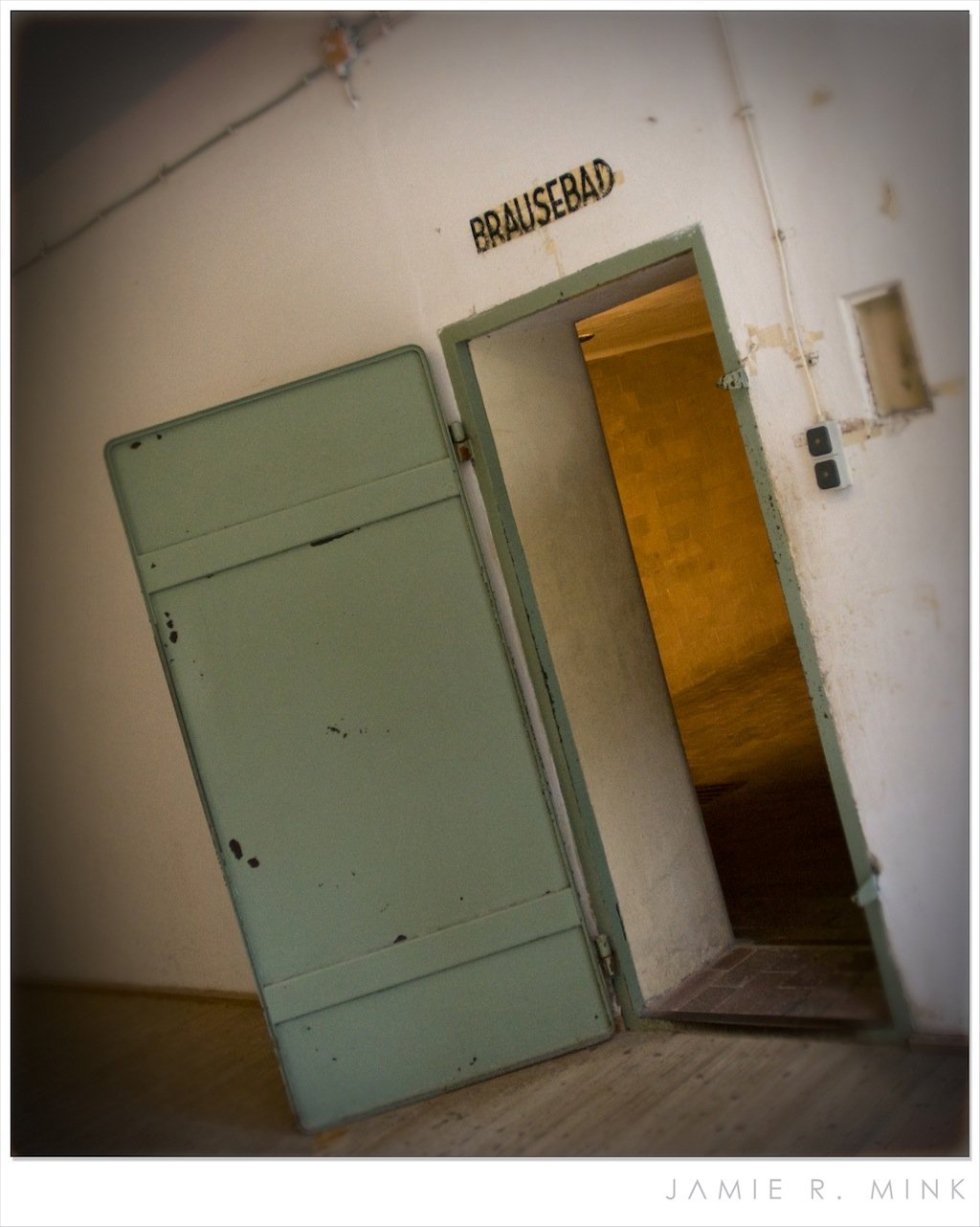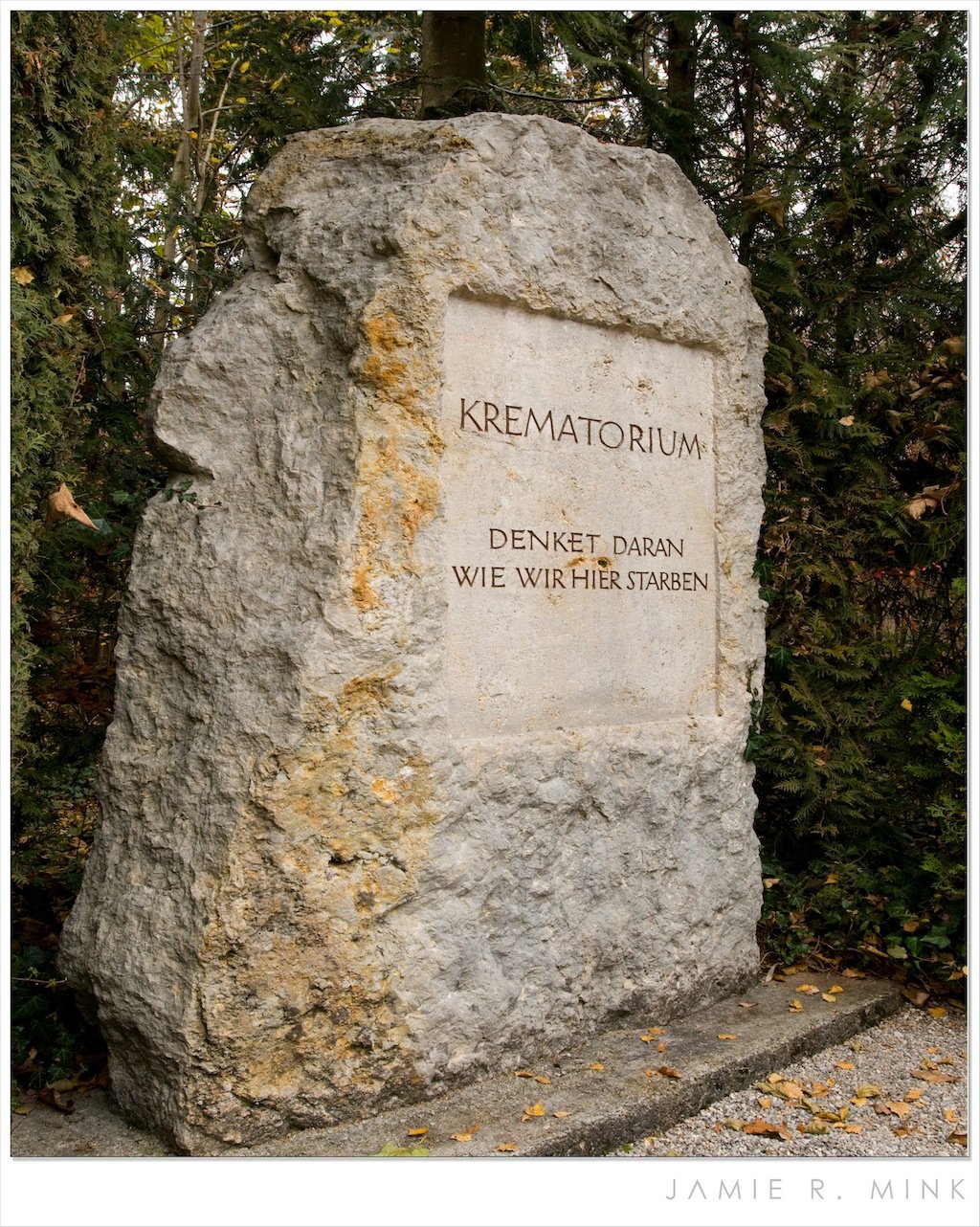Dachau | Germany
Awkwardness. Uneasiness. Trespassing. These feelings, to name a few, are the initial ones I experienced when exiting the autobahn for the last five kilometers of my trek from Berchtesgaden to Dachau, Germany. Having always been a student of WWII history, I awoke early this day in Bavaria relatively excited to finally pay visit to a concentration camp memorial. After the long drive, and once I was on the quiet, lonesome country road heading into Dachau itself, a sense of unease completely washed over me. I did not know what to fully expect heading into the area. I expected a level of somberness, of course, but I certainly did not expect the haunting landscape that opened up before me that when coupled with the overcast and imposing weather literally sent chills down my spine.
A single train track off to my right paralleled the edge of a thick forest. I mind found itself viewing the countryside through a set of black and white glasses, seeing the area as if it were playing out before me as footage from a 1940’s Universal Newsreel. I’ve never experienced such an immediate sense of gravity. Gravity, coupled with a feeling of guilt having entered the area as a tourist to one of the greatest locations of human atrocity. A foreign tourist on sacred ground, no less, that could not even ask for directions in the local dialect. I have been fortunate enough to have traveled to many far flung destinations in my years, but as I closed in on the concentration camp I have never felt so uneasy and out of place in all my life. I found myself asking, What am I doing here? What can I possibly gain from this visit? Truth be told, I was satisfying a sense of perverse curiosity that has always resided in me regarding this point in time. Trying to answer the questions, What must it have been like to have been here? Could this really have happened?
As the final directions to the memorial site were not at all marked, I finally parked in the rural area of town and asked for directions. It wasn’t until I asked a barista at a small coffee shop that I understood the last few lefts and rights to allow me to walk the last mile. A wonderfully quaint coffee shop no less, adjacent to a few delicate boutiques and a beautiful church dismissing the morning congregation. Life as normal. Tranquility that was completely at odds with what Dachau represents. Confusion settled in, and stayed with me the entire time at the memorial site, and long after I departed Germany to return home almost two weeks later.
I came across this exceptional web-journal entry from another individual's visit to Treblinka concentration camp. I believe it offers a remarkable reason of why we should never forget these places of history, and for me dismisses my confusion after having visited Dachau:
"Can we be anything other than a voyeur or an intruder when coming to a place like this? I suddenly find that the act of coming here is in itself a means to answering the kind of questions such an experience can produce. If nothing else, I'm struck by the notion of choice, an overwhelming sense of being able to walk away, to leave at any time. It's this feeling of being in possession of free will, something denied entirely by those who have been here before me, that suddenly becomes clear to me. Being 'a tourist' seems an expression of the ultimate freedom. How often are we made fully aware of our own liberty to come and go as we please?"


















